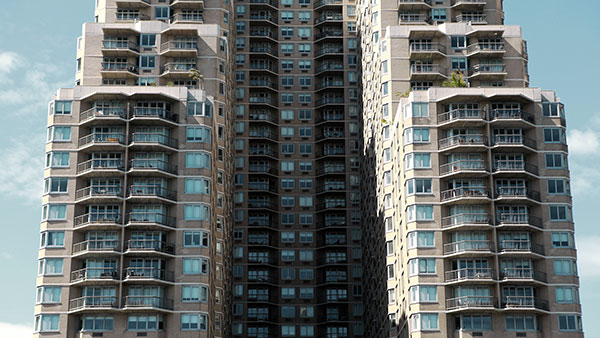
Automatic sprinkler systems can make a critical difference if a fire strikes a high-rise residence.
High-rise buildings with residential uses pose unique risks that deserve special attention to safety. Whether you are purchasing a condo, staying in a hotel or living in a high-rise senior apartment or college dorm, consider whether the building is protected by automatic sprinkler systems.
Residential use presents significant safety hazards because of people sleeping on premises. No other occupancy types have such a strong correlation between fire protection, detection and alarm systems and life safety code considerations.
The National Fire Protection Association’s Life Safety Code has required automatic sprinkler protection throughout existing and new residential high-rise occupancies – including apartments, condominiums, hotels and dormitories – since the early 1980s. Building codes can vary by state or municipality. Some jurisdictions have adopted all or only specific parts of the Life Safety Code, which can vary by occupancy type. Some “grandfather” the requirement for retrofitting buildings with automatic sprinkler protection, requiring it only with a change in occupants or ownership.
During a fire, sprinkler systems can make all the difference in whether occupants escape safely. Statistical data of fire losses from NFPA and other sources come to the same conclusion: your odds of surviving a fire are significantly greater in a sprinklered building.
When safety inspectors survey high-rise buildings – especially non-sprinklered ones – they look carefully at all features that promote life safety protection:
- building construction features that hinder spread of smoke and fire
- pathways to exit the building
- travel distances
- fire detection and alarm systems
- building communications systems
- smokeproof and pressurized stairwells
- protection of vertical openings
- emergency power systems
- emergency planning programs
A high-rise building that lacks automatic sprinklers should cause consumers to consider the potential danger before taking occupancy.
Furthermore, high-rise buildings often house people who are more vulnerable to injury from fire and smoke, such as elderly residents, college students or travelers unfamiliar with the premises.
If you or a family member are buying a condo in a high-rise or planning to live in one as a senior resident or college student, request inspection reports from management before buying or moving in. Before you travel, check your hotel or motel’s fire safety systems on a master list of approved properties that the U.S. Fire Administration assembled for those traveling on federal business.
Related Information
High-rise Apartment & Condominium Safety – NFPA resource
Fire Alarms in Apartment Buildings – NFPA resource
Planning a hotel or motel stay? Think about fire safety
College students may need fire prevention refresher
This loss control information is advisory only. The author assumes no responsibility for management or control of loss control activities. Not all exposures are identified in this article. Neither The Cincinnati Insurance Company nor its affiliates or representatives offer legal advice. Consult with your attorney about your specific situation. Contact your local, independent insurance agent for coverage advice and policy service.
